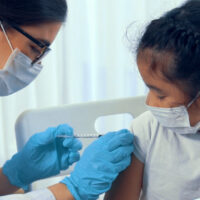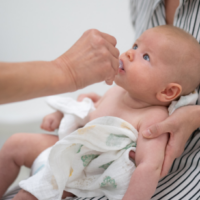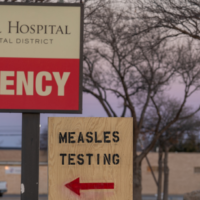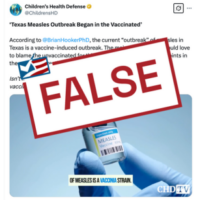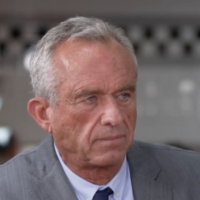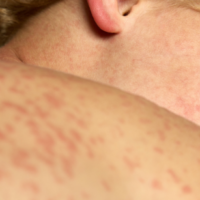In recent interviews, Health and Human Services Secretary Robert F. Kennedy Jr. has minimized the risk COVID-19 poses to kids and exaggerated the risk of the vaccine, incorrectly claiming that the shot poses a “profound risk” to children. While serious side effects can occur, they are rare, and have not been shown to outweigh the benefits of the vaccine in protecting against COVID-19.
SciCheck
FactCheck.org’s SciCheck feature focuses exclusively on false and misleading scientific claims that are made by partisans to influence public policy. It was launched in January 2015 with a grant from the Stanton Foundation. The foundation was founded by the late Frank Stanton, president of CBS for 25 years, from 1946 to 1971.
HHS Advances Kennedy’s Old ‘Placebo’ Vaccine Safety Claims
RFK Jr. Misleads on Autism Prevalence, Causes
Hits and Misses in RFK Jr.’s Comments on Food Dyes
In recent weeks, Health and Human Services Secretary Robert F. Kennedy Jr. has said that “very, very strong studies” link food dyes to cancer and ADHD. Experts are concerned about the impacts of unhealthy diets and obesity in the U.S., but some say Kennedy overstates the role of food dyes in chronic disease.
No Sign of Texas Measles Outbreak Slowing, Contrary to RFK Jr.’s Claims
Trump Misleads on Transgender Issues
RFK Jr.’s Faulty Advice On Bird Flu
In recent news appearances, Department of Health and Human Services Secretary Robert F. Kennedy Jr. has suggested allowing bird flu to spread in poultry flocks unchecked. Scientists say that’s risky because it gives the virus more opportunities to replicate, increasing the chance it could change to spread easily among humans.
Posts Make Unsupported Claims About Origin of Texas Measles Outbreak
The measles vaccine uses a weakened virus that’s never been shown to spread to others. Samples from the outbreak in Texas also show that a wild-type virus is responsible. Yet, social media posts have falsely claimed that the outbreak is due to a vaccine strain. Without evidence, other posts have blamed immigrants crossing the southern border illegally.
RFK Jr. Misleads About Measles Vaccine in Hannity Interview
In an interview with Fox News’ Sean Hannity, Health and Human Services Secretary Robert F. Kennedy Jr. made several unsupported or misleading claims about the measles vaccine, which the Centers for Disease Control and Prevention has said is safe and “the most important tool to prevent” the disease. Meanwhile, a measles outbreak in Texas continues to expand.
Measles Is Harmful, Contrary to Flimsy Social Media Claims of Long-Term Benefits
Measles is an extremely contagious vaccine-preventable disease that can lead to death or disability. It also wipes out immune memory for several years after an infection. As an outbreak in Texas continues to expand, social media posts have claimed without sufficient support that measles infections are beneficial later in life against cancer and other diseases, an idea health secretary Robert F. Kennedy Jr. has echoed.
